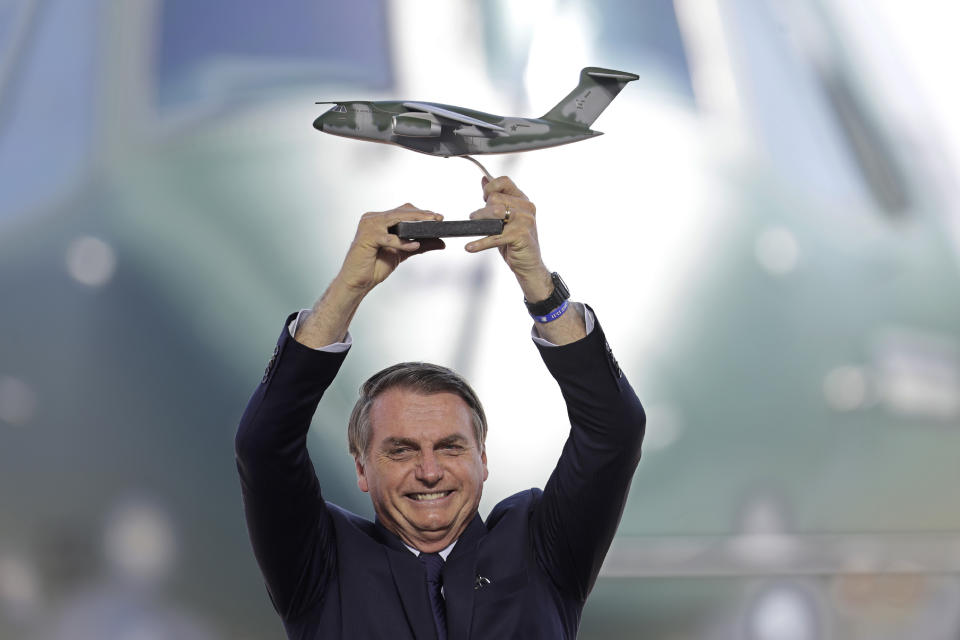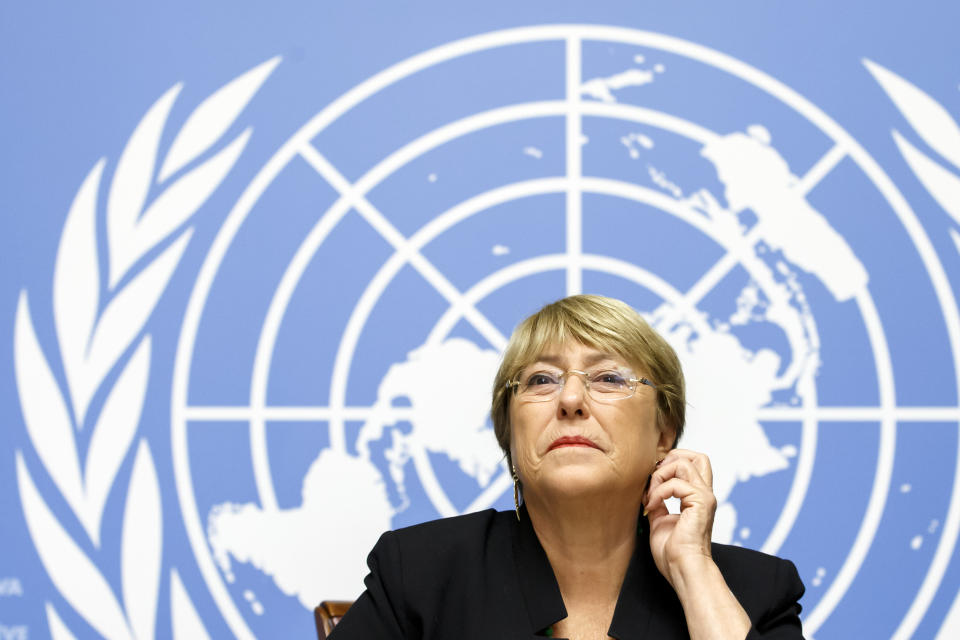Brazil's Bolsonaro praises 1973 military coup in Chile
RIO DE JANEIRO (AP) — Brazilian President Jair Bolsonaro on Wednesday criticized U.N. human rights chief Michelle Bachelet, a former Chilean president, by praising the 1973 military coup that led to her father's death.
Bolsonaro mentioned Bachelet's father Alberto, an air force officer who opposed Gen. Augusto Pinochet's coup, and was imprisoned and tortured. He died in captivity in 1974.
"If Pinochet's people had not defeated the left in 1973 — among them, your father— today Chile would be a Cuba," Bolsonaro told reporters outside his residence in Brasilia.
Pinochet's coup against the hemisphere's first elected Marxist president, Salvador Allende, set off a campaign of repression across Chile, with tens of thousands rounded up and tortured, often raped. A truth commission later determined that 3,065 suspected leftists were killed.
Among those arrested were Bachelet, who said she was tortured, and her mother, though they were later released and went into exile.
Bolsonaro spoke after Bachelet raised concerns about an increasing rate of killings by police in Brazil as well as alleged restrictions on civil liberties.
Speaking in Geneva, Bachelet condemned what she called "a public discourse legitimizing summary executions."
Without naming the Brazilian president, Bachelet criticized his stated wish to celebrate Brazil's 1964 military coup as well as his denial of past state crimes.
As a result, she said, some state agents feel "above the law and effectively able to kill without being held accountable".
Bolsonaro says Bachelet's remarks amount to meddling in Brazil's affairs.
He compared her comments to those recently made by French President Emmanuel Macron, who criticized Brazil for its handling of the Amazon fires and the country's allegedly wider neglect of the environment.
Brazil's foreign ministry later asserted that Bachelet had made false statements. It said that better policing had led to a reduction in the murder rate this year, that the rule of law was respected and that the Brazilian military had deployed effectively to fight fires in the Amazon.
The U.N. human rights office should avoid "misconceptions" when commenting on Brazil and focus on more pressing matters such as Venezuela's humanitarian crisis, the ministry said in a statement.
In fact, Bachelet issued a scathing report on Venezuela's human rights record after visiting that country in June. Venezuelan authorities said the report was biased and ignored a record of violence by the opposition, whose attempt to stage a military rebellion on April 30 failed.
A former army captain, Bolsonaro has repeatedly praised Brazil's 1964-1985 military regime.
A Brazilian commission concluded in 2014 that the dictatorship was responsible for at least 434 extrajudicial killings and disappearances. Between 30,000 and 50,000 people were illegally arrested and tortured, according to estimates.
In 2016, Bolsonaro, while a member of congress, voted to impeach then-President Dilma Rousseff, a former guerrilla who was imprisoned and tortured during military rule. Bolsonaro dedicated his vote to the colonel in charge of the torture unit.
Rousseff condemned Bolsonaro's response to Bachelet's comments on Brazil, saying he reacted with typical "nastiness" and by "celebrating" the death of the former Chilean president's father.
In Chile, several politicians expressed support for Bachelet following Bolsonaro's criticism. They included Sen. Isabel Allende, daughter of the president who was ousted in the 1973 coup.
Chilean President Sebastián Piñera, who pledged firefighting aid for Brazil during a visit last month, also distanced himself from the remark.
"I do not share at all the allusion made by President Jair Bolsonaro with respect to a former Chilean president and, especially, in a topic so painful as the death of her father," he said.
__
Associated Press reporter Eva Vergara in Chile contributed to this report.


